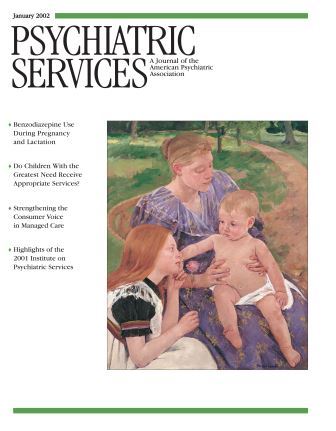Harlem Hospital Center's Geropsychiatric Service
Harlem Hospital Center's geropsychiatric service has built a program around the needs of a specific minority population: Harlem residents over 65 years of age, almost exclusively African American, who are experiencing psychiatric symptoms.
The service has three components: day treatment, a mobile team for homebound patients, and an outpatient service division. The service is structured to allow clinicians the flexibility to reassess and reformulate diagnoses and treatment plans regularly. Individual patient needs define the structure and the locus of the services provided.
The day program addresses the lack of support and the social isolation of many of our patients. Eighteen to 24 patients attend the program two to four days a week for five or six hours a day. Interventions include individual therapy (usually supportive), milieu therapy, pharmacotherapy, group activities, concrete social services, and counseling. Supportive group meetings are held for home caregivers, in which staff provide education and caregivers share their experiences with one another. Caregivers also obtain some relief in their schedules.
Two psychiatrists and an internist address patients' psychiatric and medical illnesses. The psychiatrists attend to patients in the day treatment program daily, to homebound patients as clinically indicated, and to clinic patients at each outpatient visit. The internist is involved in the initial evaluation of patients, serves as a consultant to the psychiatrists and other clinical personnel, evaluates patients at least once a year, and administers preventive inoculations. The internist also may be responsible for the comprehensive medical care of patients who are confined to their homes.
We track the patients' level of illness-related disability by administering several scales about twice a year, including the Geriatric Depression Screening Scale, the Mini Mental State Examination, the Global Deterioration Scale, and measures of activities of daily living. As a patient's clinical condition changes, he or she may be transferred from one program site to another. When indicated and possible, an adjustment period is allowed during which patients are simultaneously in treatment in two programs. We continually reevaluate each patient's service plan, and when treatment goals are not being met we conduct in-depth analyses to identify needs that require further intervention.
Given the proportion of African-American elderly people who are living near or below the poverty line and the difficulties they have in obtaining care, we have instituted social service components and connections to legal services that provide patients with counsel on housing, use of entitlements, and patients' rights within the health care system. We train and recruit clinicians to encourage sensitivity to patients' cultural, spiritual, and community needs. In-service training is used to educate clinicians about various medical conditions that afflict the elderly, such as visual impairments and arthritis.
We perform evaluations in various settings where the elderly congregate and in patients' homes. We provide transportation for staff to visit patients, and we provide transportation by van for patients who do not have Medicaid coverage who would otherwise be unable to keep their appointments.
We have developed informational and educational connections with other services that are offered to elderly people in our community, including housing, senior citizen centers, protective services for adults, social service agencies, medical institutions, and individual practitioners. We maintain close contact with other formal and informal care providers, such as family, neighbors, home attendants, and physicians. A reverend is available part-time and acts as a liaison with local churches.
In summary, Harlem Hospital Center's geropsychiatric service is a model for providing comprehensive services to an elderly minority population.
Mr. Spodak is affiliated with the Ferkauf Graduate School of Psychology at Yeshiva University in the Bronx, New York, and Dr. Jonas is affiliated with the department of psychiatry at Columbia University and Harlem Hospital Center's geropsychiatric service in New York City. Send correspondence to Dr. Jonas, Harlem Hospital Center, Geropsychiatric Service, 506 Lenox Avenue WP 7, New York, New York 10037 (e-mail, [email protected]).



